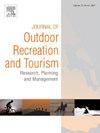Explaining the intention to practice “Leave No Trace” in Hong Kong's country parks: The roles of environmental self-identity, personal moral norms and awareness of consequences
IF 4.4
3区 管理学
Q1 HOSPITALITY, LEISURE, SPORT & TOURISM
Journal of Outdoor Recreation and Tourism-Research Planning and Management
Pub Date : 2025-06-25
DOI:10.1016/j.jort.2025.100916
引用次数: 0
Abstract
The persistent littering in Hong Kong's country parks, despite the “Leave No Trace” (LNT) programme initiated in 2015, highlights its limitations. This study, guided by the Theory of Planned Behaviour (TPB), extends the model by adding three new variables–environmental self-identity, personal moral norms, and awareness of consequences–and aims to identify the drivers of LNT intention among park users. Through a questionnaire survey conducted in 12 country parks, 596 valid responses were collected and analysed using structural equation modelling (SEM). The results showed that the extended model had enhanced explanatory power. Personal moral norms emerged as the strongest direct factor driving LNT intention, while subjective norms lost their direct influence, and only had an effect on intention when mediated by personal moral norms. Environmental self-identity played a limited role, and awareness of consequences indirectly affected LNT intention, primarily through personal moral norms and to a lesser extent through attitude. These findings deepen the understanding of LNT behaviour, especially highlighting the crucial role of personal moral norms, and provide policymakers and park managers with evidence-based solutions to refine the LNT programme.
解释在香港郊野公园推行“不留痕迹”的意图:环境自我认同、个人道德规范和后果意识的作用
尽管香港于2015年推行“不留痕迹”计划,但郊野公园仍持续乱扔垃圾,突显了该计划的局限性。本研究在计划行为理论(TPB)的指导下,通过增加三个新变量——环境自我认同、个人道德规范和后果意识——扩展了该模型,旨在确定公园使用者LNT意愿的驱动因素。通过在12个郊野公园进行问卷调查,收集了596份有效回复,并使用结构方程模型(SEM)进行分析。结果表明,扩展模型具有较强的解释力。个人道德规范成为最强烈的直接驱动因素,主观规范失去了直接影响,只有在个人道德规范的介导下才会对意愿产生影响。环境自我认同作用有限,后果意识间接影响LNT意向,主要通过个人道德规范,其次是通过态度。这些发现加深了对LNT行为的理解,特别是强调了个人道德规范的关键作用,并为政策制定者和公园管理者提供了基于证据的解决方案,以完善LNT计划。
本文章由计算机程序翻译,如有差异,请以英文原文为准。
求助全文
约1分钟内获得全文
求助全文
来源期刊

Journal of Outdoor Recreation and Tourism-Research Planning and Management
HOSPITALITY, LEISURE, SPORT & TOURISM-
CiteScore
6.70
自引率
5.30%
发文量
84
期刊介绍:
Journal of Outdoor Recreation and Tourism offers a dedicated outlet for research relevant to social sciences and natural resources. The journal publishes peer reviewed original research on all aspects of outdoor recreation planning and management, covering the entire spectrum of settings from wilderness to urban outdoor recreation opportunities. It also focuses on new products and findings in nature based tourism and park management. JORT is an interdisciplinary and transdisciplinary journal, articles may focus on any aspect of theory, method, or concept of outdoor recreation research, planning or management, and interdisciplinary work is especially welcome, and may be of a theoretical and/or a case study nature. Depending on the topic of investigation, articles may be positioned within one academic discipline, or draw from several disciplines in an integrative manner, with overarching relevance to social sciences and natural resources. JORT is international in scope and attracts scholars from all reaches of the world to facilitate the exchange of ideas. As such, the journal enhances understanding of scientific knowledge, empirical results, and practitioners'' needs. Therefore in JORT each article is accompanied by an executive summary, written by the editors or authors, highlighting the planning and management relevant aspects of the article.
 求助内容:
求助内容: 应助结果提醒方式:
应助结果提醒方式:


